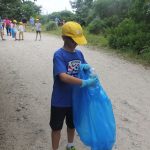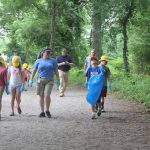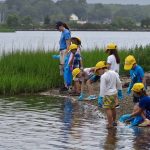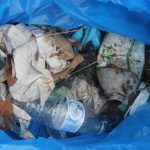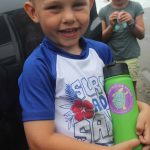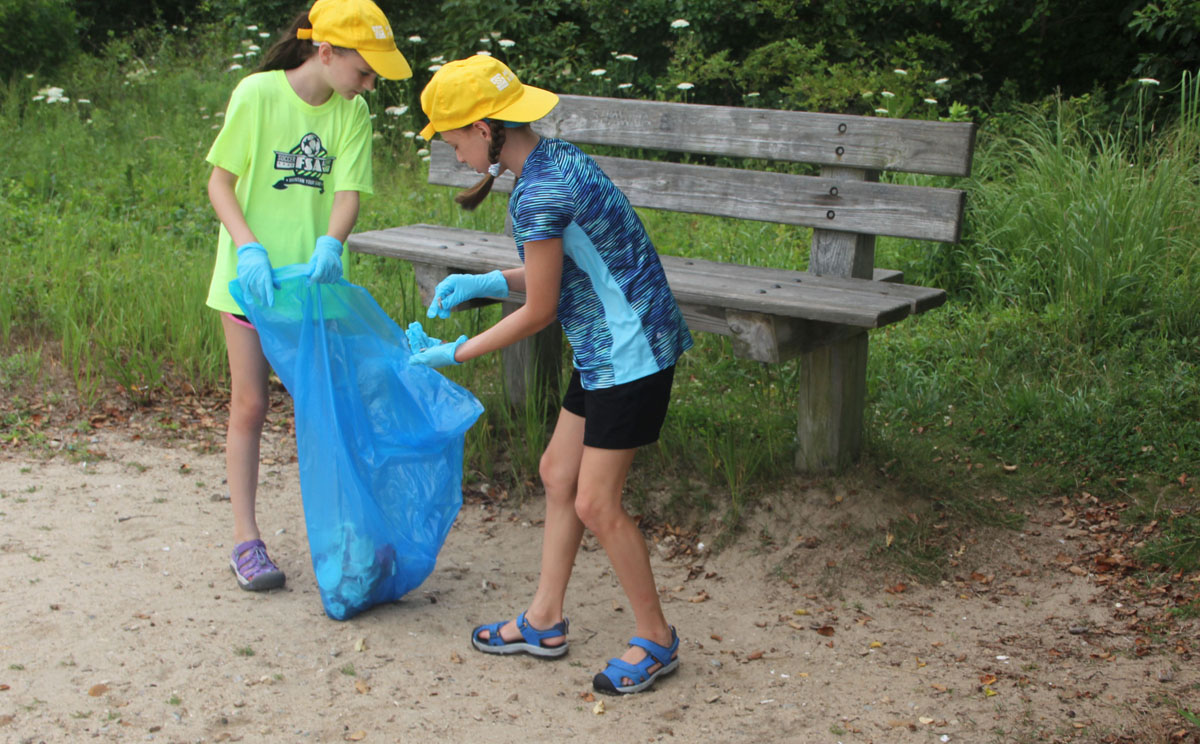
By Judy Benson
Groton – About 40 youth from Mystic Aquarium’s summer camps joined representatives of the Long Island Sound Study and Connecticut Sea Grant in a cleanup at Bluff Point State Park on Aug. 1 to launch a social medial campaign to get people to “break the single-use plastic habit” and help protect the Sound’s wildlife.
“Mystic Aquarium is proud to be one of the many organizations working on this campaign that will both educate and empower,” said MaryEllen Mateleska, director of conservation and education at the aquarium. “And, we are thrilled to kick off this campaign in our home state, in our backyard and most importantly on the shore of Long Island Sound.”
The Please #DontTrashLISound social media campaign will run for seven weeks this summer, from Aug. 2 to Sept. 14. Building on the success of last year’s #DontTrashLISound campaign, which drew more than 80,000 participants, this year’s campaign focuses on single-use plastics and the hazards they pose to the Sound’s wildlife. Disposable bottles, bags, straws and other plastic waste pollutes beaches, wetlands and gets into the estuary, where wildlife get tangled in it or ingest it as it breaks up into small pieces.
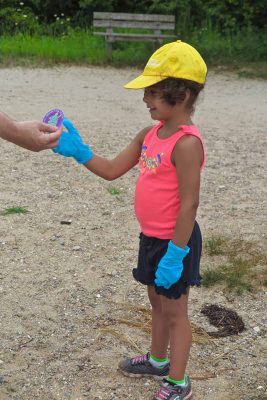
“The problem of plastic pollution, although challenging, is not intractable,” said Judy Preston, Long Island Sound Outreach Coordinator for Connecticut Sea Grant and the Long Island Sound Study. “Everyone can make a difference. Use less, find alternatives, keep it out of the environment or help remove it from the places it shouldn’t be. We’re waking up to the damages that plastic garbage can cause, and that’s exciting. Be part of the solution.”
The campaign is being led by the Long Island Sound Study, a partnership of the Environmental Protection Agency, Connecticut and New York agencies and nonprofit groups, including Connecticut Sea Grant. During the campaign, people will be encouraged to quit using plastic straws, lids and stirrers and to switch to reusable shopping bags and water bottles instead of disposable ones. Facebook and Twitter posts will highlight the amount of plastic already in the marine waters, the harm it causes to wildlife and its longevity in the environment.
“The persistence is the problem,” said Penny Vlahos, associate professor of marine sciences at the University of Connecticut. “Eventually plastics break down into microscopic bits that latch onto the algae the fish eat. We do find plastic in animal guts.”
During the cleanup, the campers found many items made entirely or partially of plastic, including water bottles, fast-food drinking cups, cigarette butts, bits of packaging and cutlery.
“It’s important to pick up trash because if you don’t the animals could get sick,” said Athena Costick, 5, one of the campers. “It’s bad for them to eat.”
After the cleanup, the campers received colorful stickers being given out as part of the campaign. With pictures of Long Island Sound wildlife and the “Break the Single-Use Plastic Habit: Protect Our Wildlife” messages, the stickers can be attached to reusable water bottles and bags. People are encouraged to share photos of themselves holding items with the stickers at: #DontTrashLISound and #LISound.
Judy Benson is the communications coordinator for Connecticut Sea Grant.
